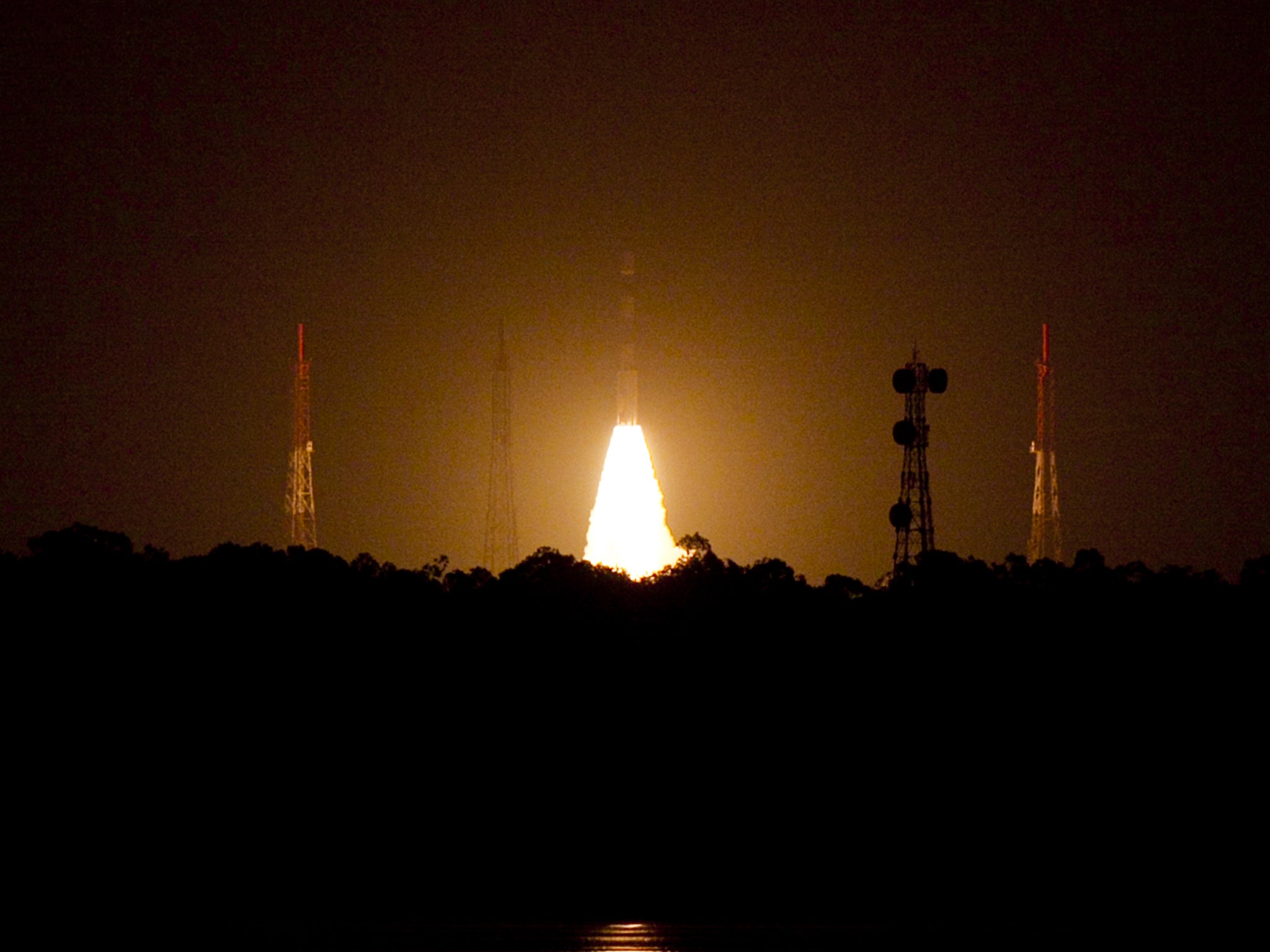Critics ask why Britain is giving £1.5bn in aid to six nations with space ambitions
TaxPayers' Alliance says countries with space programmes should not be receiving money from UK mean to be going to world's poorest

It has emerged that six of the eight countries receiving the largest packages of British aid are set to launch their own space programmes.
The six countries, which were collectively given £1.5bn of British taxpayers money last year are funding satellites and rockets that often dwarf Britain's own ambitions in space, according to The Times.
Nigeria, which is set to receive £305m of British aid in 2014-15, is hoping to have its first astronauts within two years. The West African nation, where almost 70 per cent of the country's population live on less than 64p a day, already launched three satellites into orbit.
Critics have demanded to know why some of the poorest countries in Africa and Asia were spending millions on space programmes while still receiving aid money.
India, the world's fourth largest economy and the biggest recipient of non-humanitarian aid from Britain already has 60 satellites in space. The country, which has received almost £860 million from the UK government in the last three years, last month launched the first part of a £154 million domestic satellite navigation network to rival the well-known GPS system created by the United States.
Ethiopia, which will receive £261m this year, announced in February that it was making plans to launch its own satellite and that tests had begun. Pakistan, which received £203m this year, launched its first satellite, Paksat-1R in 2011. Meanwhile Bangladesh has announced it will launch its first in two years, by which time it will have received £196m.
Matthew Sinclair, chief executive of the TaxPayers' Alliance told the paper that the spending on space programmes increased the public's concerns about the rising amount of overseas aid.
“If a foreign government has enough cash to invest in an ambitious space programme, it should not expect to be receiving cash from the UK which is earmarked for helping the world’s poorest,” he said.
Advocates of such space programmes claim that they are vital to poor countries' economic and social development. It is also argued that they can attract international investment and create jobs.
The Department for International Development, will give £11.3bn in overseas development aid (ODA) this year.
A spokesman for DfID responded to the paper by saying, “No UK aid money is spent on helping developing countries put people in space and in reality these space programmes tend to be about getting essential communications and weather satellites into orbit.”
Join our commenting forum
Join thought-provoking conversations, follow other Independent readers and see their replies
Comments
Bookmark popover
Removed from bookmarks